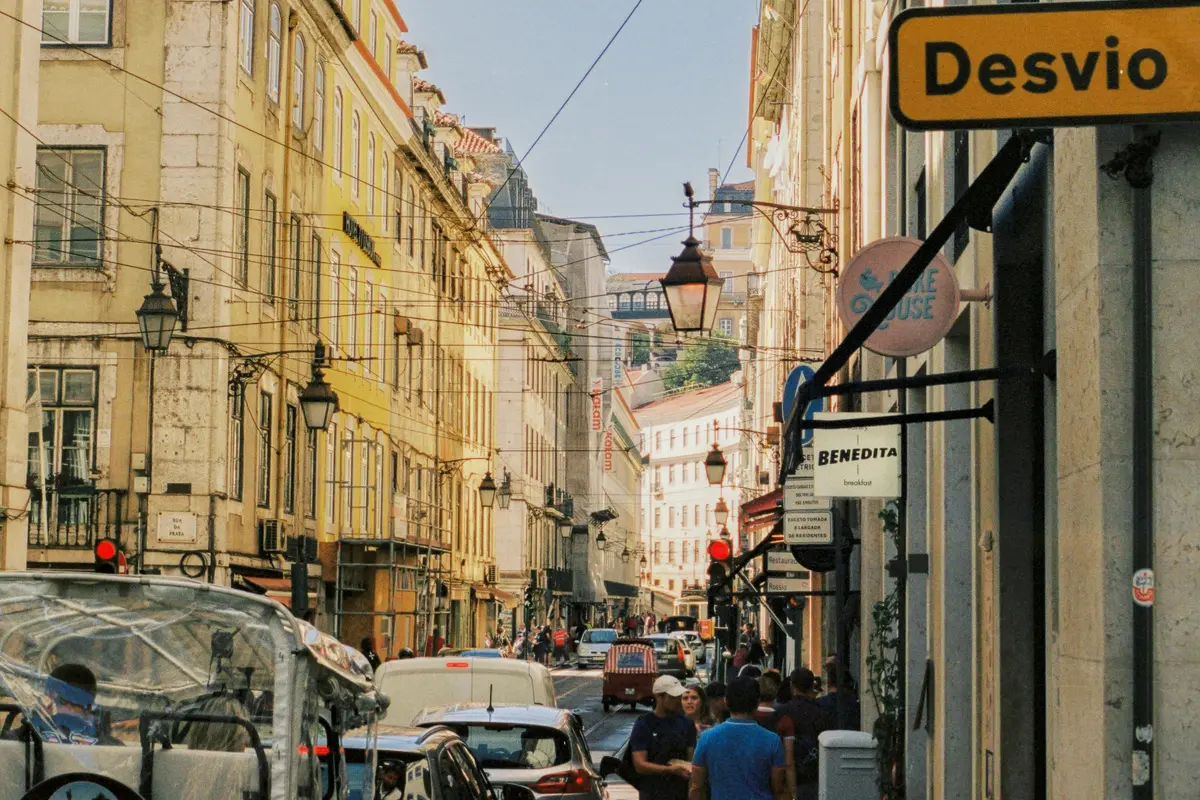
If you’re wondering what the most useful Portuguese basic words are, the answer is simple: greetings, polite phrases, and everyday essentials that help you connect with locals. Words like “Olá” (Hello), “Obrigado/a” (Thank you), and “Por favor” (Please) form the foundation of communication in the Portuguese language. Whether you’re traveling to Portugal or Brazil, knowing these essentials can turn a simple exchange into a warm interaction — and show respect for local culture right away.
This guide will walk you through the most essential Portuguese words and phrases, why they matter, and how to use them naturally in real-life situations.
Table of Contents
Open Table of Contents
- 1. Why Learn Portuguese Basic Words First?
- 2. Essential Greetings in Portuguese
- 3. Polite Phrases You’ll Use Daily
- 4. Numbers, Days, and Time Basics
- 5. Travel-Friendly Words and Questions
- 6. Everyday Survival Phrases
- 7. Brazilian Portuguese vs. European Portuguese Words
- 8. Common Mistakes Beginners Make
- 9. Cultural Insights That Make a Difference
- 10. Final Thoughts: Building Confidence with Essentials
1. Why Learn Portuguese Basic Words First?
When starting out in any language, it’s tempting to dive straight into grammar or long vocabulary lists. But focusing on basic Portuguese phrases gives you a head start. These essentials allow you to:
- Greet locals warmly and politely.
- Ask for directions or help.
- Order food or shop without stress.
- Show cultural respect by trying the local tongue.
Linguists agree: the 1,000 most common words in a language cover about 80% of daily conversations. That means if you start with Portuguese basic words, you’ll be able to handle most travel and daily-life situations without needing advanced grammar.
2. Essential Greetings in Portuguese
- Olá — Hello
- Oi — Hi (casual, more common in Brazilian Portuguese)
- Bom dia — Good morning
- Boa tarde — Good afternoon
- Boa noite — Good evening / Good night
💡 Tip: In Portugal, greetings change with the time of day. Saying “bom dia” (good morning) before noon shows awareness of cultural norms.
3. Polite Phrases You’ll Use Daily
Politeness goes a long way when learning Portuguese.
- Por favor — Please
- Obrigado / Obrigada — Thank you (men say “obrigado,” women say “obrigada”)
- De nada — You’re welcome
- Com licença — Excuse me
- Desculpe — Sorry
💡 You might also hear “Não há de quê” in Portugal — a warm, colloquial way to say “you’re welcome,” meaning “it’s nothing.”
4. Numbers, Days, and Time Basics
Numbers and time words are crucial when shopping, asking for schedules, or making plans.
- Um, dois, três — One, two, three
- Dez — Ten
- Vinte — Twenty
- Hoje — Today
- Amanhã — Tomorrow
- Ontem — Yesterday
- Que horas são? — What time is it?
5. Travel-Friendly Words and Questions
If you’re on a trip, these will save you:
- Onde fica a casa de banho? — Where is the bathroom?
- Quanto custa? — How much does it cost?
- Você fala inglês? — Do you speak English?
- Não falo português. — I don’t speak Portuguese.
- Eu não entendo. — I don’t understand.
- Meu nome é… — My name is…
- Qual é o seu nome? — What is your name?
6. Everyday Survival Phrases
These phrases help in real-life moments:
- Sim — Yes
- Não — No
- Talvez — Maybe
- Estou perdido/a. — I am lost.
- Preciso de ajuda. — I need help.
- Com certeza. — Of course.
7. Brazilian Portuguese vs. European Portuguese Words
Though mutually understandable, Brazilian Portuguese and European Portuguese have vocabulary differences.
- Bus: Ônibus (Brazil) / Autocarro (Portugal)
- Ice cream: Sorvete (Brazil) / Gelado (Portugal)
- Bathroom: Banheiro (Brazil) / Casa de banho (Portugal)
Brazilian Portuguese tends to sound more melodic, while European Portuguese is often quicker and less open in vowels.
8. Common Mistakes Beginners Make
- Using “sim” (yes) without the correct intonation.
- Forgetting gendered thank-you forms (obrigado vs. obrigada).
- Mixing Spanish with Portuguese.
- Avoiding nasal sounds — like in “não” (no), which is not the same as Spanish “no.”
9. Cultural Insights That Make a Difference
Learning Portuguese basic words isn’t just about communication — it’s about connection.
- In Portugal, people appreciate when you greet properly with the time of day.
- In Brazil, friendliness is often expressed through casual forms like “Oi” or even “Tudo bem?” as both a greeting and a question.
- Even if locals speak English, starting with basic Portuguese phrases like meu nome é or não entendo shows respect and effort.
10. Final Thoughts: Building Confidence with Essentials
So, is it worth starting with Portuguese basic words? Absolutely. These essentials are the stepping stones to fluency in the Portuguese language. With greetings, polite expressions, survival phrases, and cultural awareness, you’ll already sound more confident and approachable when speaking with locals.
Whether your journey is just for travel or part of a deeper goal of learning Portuguese, start small, stay consistent, and keep practicing. With every “obrigado” or “olá,” you’re not just learning words — you’re building bridges to a rich and welcoming culture.
Key takeaway: Start with basic Portuguese words, practice them daily, and use them in real life. With time, they’ll become second nature, and you’ll feel at home in any Portuguese-speaking setting.